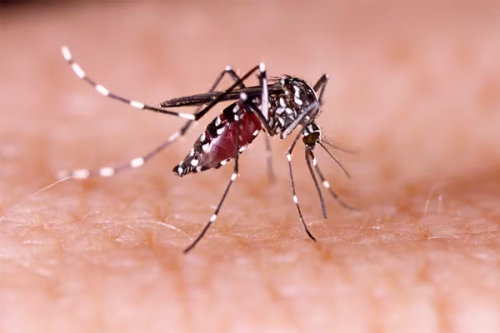Bihar records more than 2,600 cases of dengue this year

Patna, Sep 27 (IANS) The dengue outbreak in Bihar has seen over 2,600 cases this year. There has been a significant increase in the number of cases since July.
Patna is the worst-affected district, with 1,331 cases reported, including 50 in the last 24 hours alone. Other affected districts include Muzaffarpur, Aurangabad, Sitamarhi, Bhagalpur, Munger, Saran, Vaishali, and Samastipur.
Dr Subhash Chandra Prasad, the district infection disease controller, highlighted the rising numbers in Patna, underlining the serious public health challenge posed by dengue in the region.
Dr Subhash Chandra Prasad has said that several localities in Patna, such as Azimabad, Kankarbagh, Patliputra, Bankipur, Patna City, Bakhtiyarpur, Fatuha, Danapur, Dulhin Bazar, Sampat Chak, and Patna Sadar have dengue patients making frequent visits to hospitals. To manage the surge, additional dengue wards have been established in key hospitals, including IGIMS, PMCH, NMCH, Patna AIIMS, Kurji Holy Family, as well as other government hospitals.
“We have urged the public to be vigilant against vector-borne diseases like dengue, which present symptoms such as high fever, headaches, eye and joint pain, and sometimes red spots on the body. In severe cases, nosebleeds or vomiting blood may occur. A district-wide awareness campaign has been launched, advising people with such symptoms to consult doctors,” Prasad said.
Dr Bijay Singh, a prominent general physician, emphasised that self-medication often worsens the disease.
“It is extremely important to conduct blood tests for diagnosis and maintaining platelet count above 100,000. Risk of internal bleeding increases when platelet count drops below 25,000,” Singh said.
Dr Manish Mandal, Superintendent of IGIMS, shared that three dengue strains—DEN V1, DEN V2, and DEN V3—were discovered during sero analysis conducted in the hospital.
After testing 50 dengue patients in the microbiology lab, these strains were identified. Dr Mandal emphasised that these strains are not considered particularly dangerous, and the patients admitted to the hospital are recovering well.
He urged people to not underestimate the risks of dengue and to consult medical practitioners if they exhibit symptoms. In preparation for the rise in cases, IGIMS has allocated 40 beds specifically for dengue patients.

|

|

